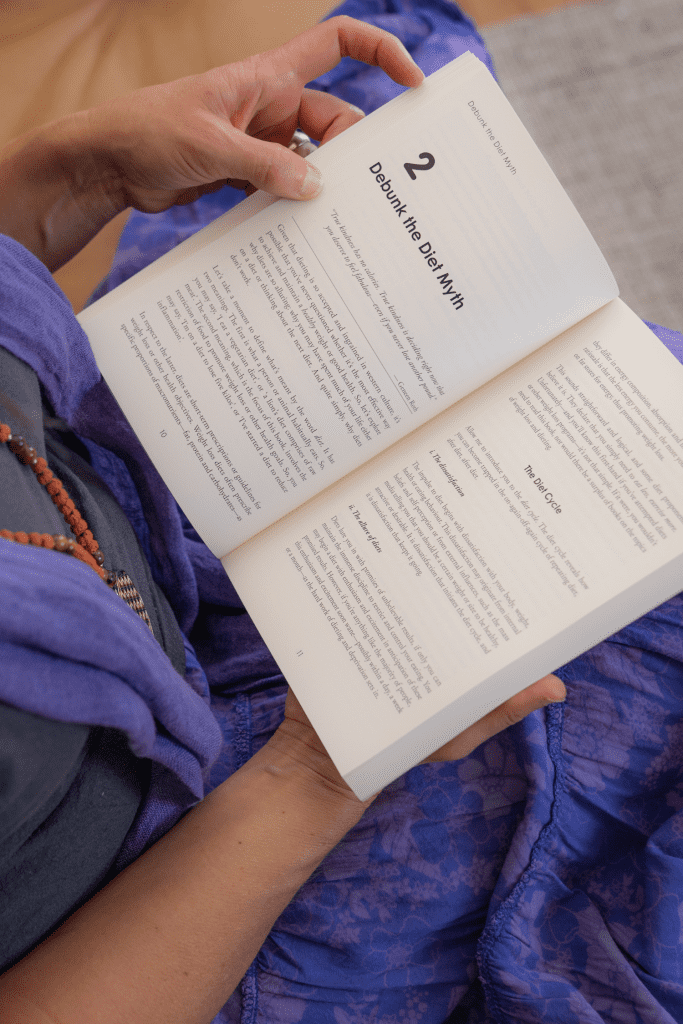Going on a cleanse can be appealing in the New Year. It can symbolise renewal and a fresh start to the New Year.
However, do you need to do a cleanse or detox? Do you need to follow a restrictive diet of juices or insubstantial salad greens, or purchase expensive detox teas or products to cleanse your body?
Quite simply: no.
Your body is always cleansing
Your body is highly efficient in eliminating waste products from metabolism. Even if you stopped eating or drinking right now, you’d continue producing waste products.
Your body’s ability to cleanse itself is only likely to fall short if you are exposed to a huge toxic load (think poisoning), or if you have kidney failure or liver disease. Mention of such diseases can provoke fear, and it is often this fear that is used to sell cleanses. However, going on a cleanse, or doing a detox, is not the answer to support your body.
You can’t ‘wipe the slate clean’ or absolve your dietary and lifestyle sins with a week’s cleanse.
Your body requires ongoing support of your elimination organs, which is best achieved by adopting lifestyle behaviours you can maintain ongoing. I know, it doesn’t sound as enticing or Instagram worthy as a cleanse, but your bodily functions just ain’t that sexy…sorry!
You cannot undo a year of eating badly through a week-long cleanse or detox, no matter how convincingly flawless the model endorsing it is. Nor will a cleanse reveal a new you that was buried beneath toxic waste.
Therefore, I say: ditch the cleanse or detox products and support your body’s natural ability to cleanse itself.
So, what are those not so sexy organs that support your body’s natural ability to cleanse?
- Liver. Rids the body of harmful chemicals, coverts toxic ammonia (and carbon dioxide) into urea.
- Kidneys. Filters blood, removing wastes (incl. urea), which combined with water to produce urine.
- Lungs. Excretes carbon dioxide.
- Skin. Sweating removes salts, water and some urea.
- Colon. Eliminates solid waste products.
- Hydrate. Drink plenty of water to support the removal of wastes from the kidneys and colon.
And, what are some behaviours you can adopt to support your body’s natural cleansing processes?
- Hydrate. Drink plenty of water to support the removal of wastes from the kidneys and colon.
- Fibre. Eat ample fibre such as found in cereal, brans, fruits and vegetables: fibre can reduce the transit time of waste through the digestive system.
- Eat your greens. Enjoy a variety of green leafy vegetables (and grains, fruits and other vegetables) to provide nutrients to support the function of the liver.
- Go easy on protein. Excess protein (aka high protein diets of more than 100g/day) can put a burden on your liver and kidneys. Keep protein intake to government guidelines or increase water intake to account for the additional waste product.
- Breath. Engage in exercise or deep breathing to cleanse via your lungs and skin.
- Moderate alcohol consumption. Alcohol is a toxin for the body. Limit consumption (no more than two standard drinks per day) and have alcohol-free days each week.
It is the ongoing support you provide your organs, good nourishment and volume of water and fibre for elimination, which will make the biggest difference to your body’s ability to deal with toxins and wastes. A diet overhaul by way of a cleanse or detox is likely to impose stress on your body and be mentally and emotionally stressful. Given the improbable benefits, leave the spring cleaning to your junk drawer or the garage; and even then, you will probably only wipe the slate clean momentarily, before it gets choked up with more junk.
How can you then achieve optimal health?
Often the aim of doing a cleanse in the New Year, or at any time, is to achieve optimal health. I debunk the concept of optimal health in my book, Joyful Eating: How to Break Free of Diets and Make Peace with Your Body. You can download the chapter where I debunk optimal health, Debunk the Diet Myth, for FREE. It’s my gift to you.

